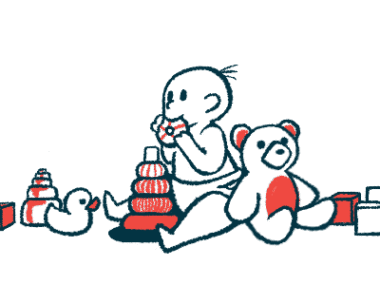FDA Accepts New Drug Application for Nayzilam Nasal Spray for Acute Treatment of Seizures
Written by |

The U.S. Food and Drug Administration has accepted a new drug application (NDA) for UCB’s Nayzilam (midazolam) nasal spray for the acute treatment of seizures including seizure clusters and acute repetitive seizures.
Acceptance of this NDA could result in Nayzilam’s approval in the U.S. in early 2019, potentially making it the first new medication approved to treat seizure clusters in more than 17 years.
Nayzilam nasal spray is an investigational rescue medication intended to treat prolonged seizures. Its active component, midazolam, is a GABA agonist, a molecule that acts in a similar way to GABA — a signaling molecule in the brain that inhibits nerve cell signaling.
By mimicking GABA’s action, midazolam is thought to compensate for the impaired action of GABA-releasing neurons in Dravet syndrome patients, decreasing the frequency of seizures.
Rescue medicines are quick-acting anti-epileptic drugs given in an emergency situation to help stop a seizure before it progresses to status epilepticus — in which epileptic episodes follow one another without recovery of consciousness in between. In these cases, rescue medications can be crucial.
“Managing seizure clusters remains a challenge for thousands of patients and caregivers, in the US and beyond, who live their lives each day with this debilitating condition,” Jeff Wren, head of neurology and executive vice president of UCB, said in a press release.
The FDA’s decision to accept the NDA is based on positive data from the Phase 3 ARTEMIS-1 clinical trial (NCT01390220), which evaluated the safety and effectiveness of Nayzilam in 292 patients with acute repetitive seizures.
The trial met its primary objective, which assessed the proportion of patients whose seizures ended within 10 minutes of Nayzilam administration, and who did not have a recurrence of seizures between 10 minutes and six hours after administration.
Nayzilam appeared to be safe and well-tolerated, and adverse events were generally consistent with the route of administration and pharmacology of the compound.
“There is an unmet need for effective and convenient acute treatment of seizure clusters that can rapidly end ongoing seizures and potentially prevent or delay their reoccurrence,” Wren said.
Nayzilam was previously granted orphan drug and fast track designation by the FDA for the rescue treatment of seizures in patients who experience recurrent periods of high seizure activity.
The fast track designation allows for an accelerated FDA review process for treatments that could treat serious conditions and fill an unmet medical need.
UCB acquired Nayzilam from Proximagen in June. Since then, the two companies have worked closely together to advance the NDA filing.





